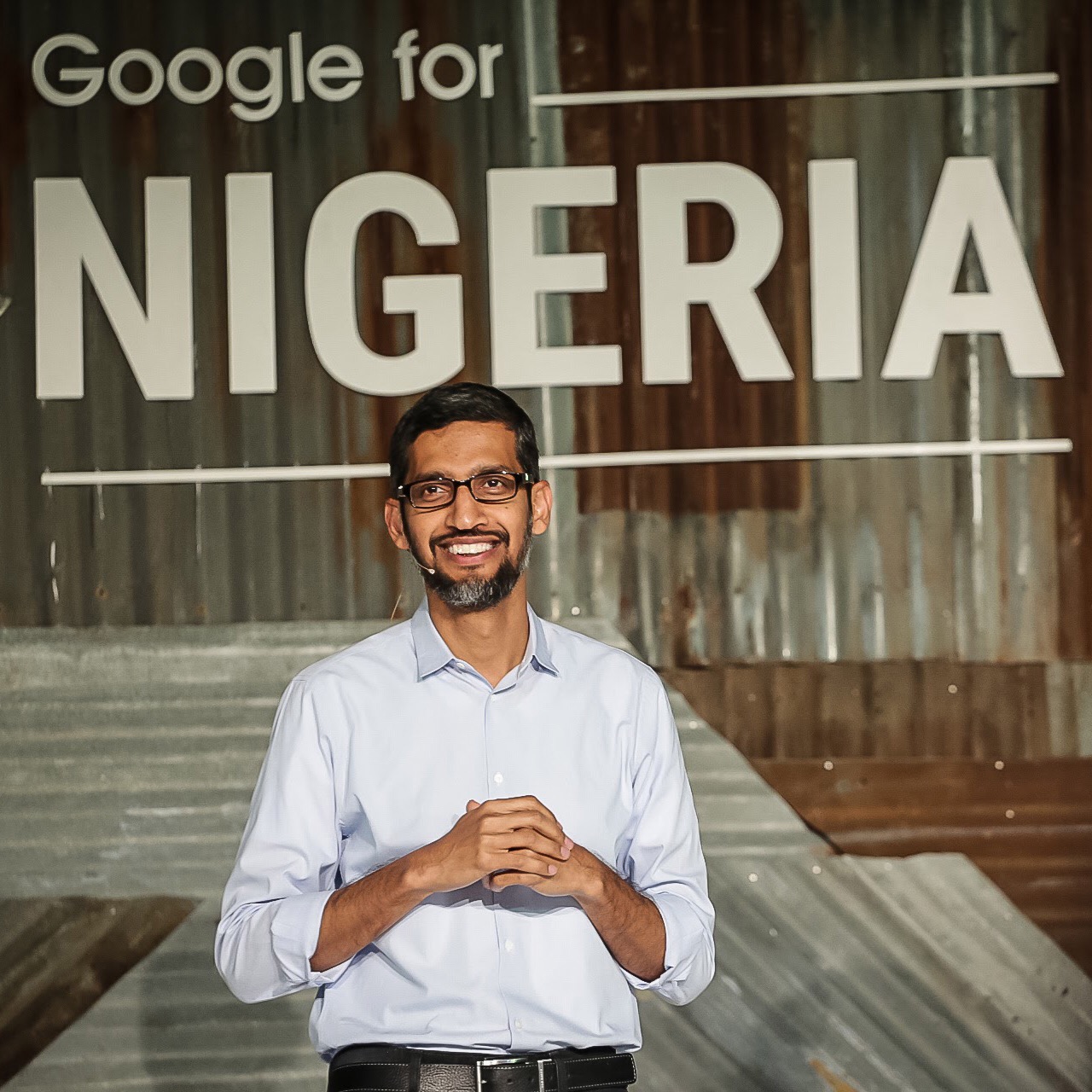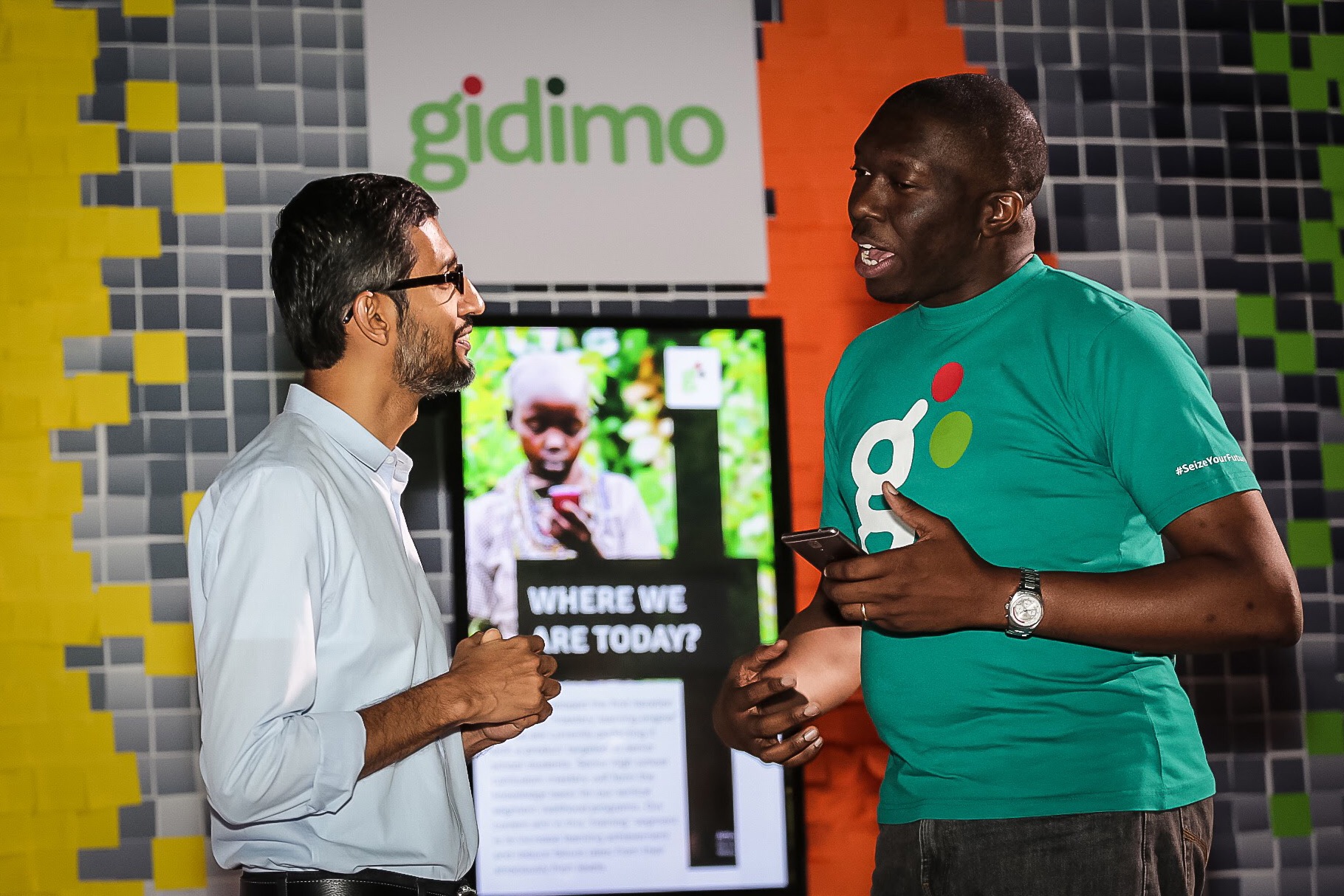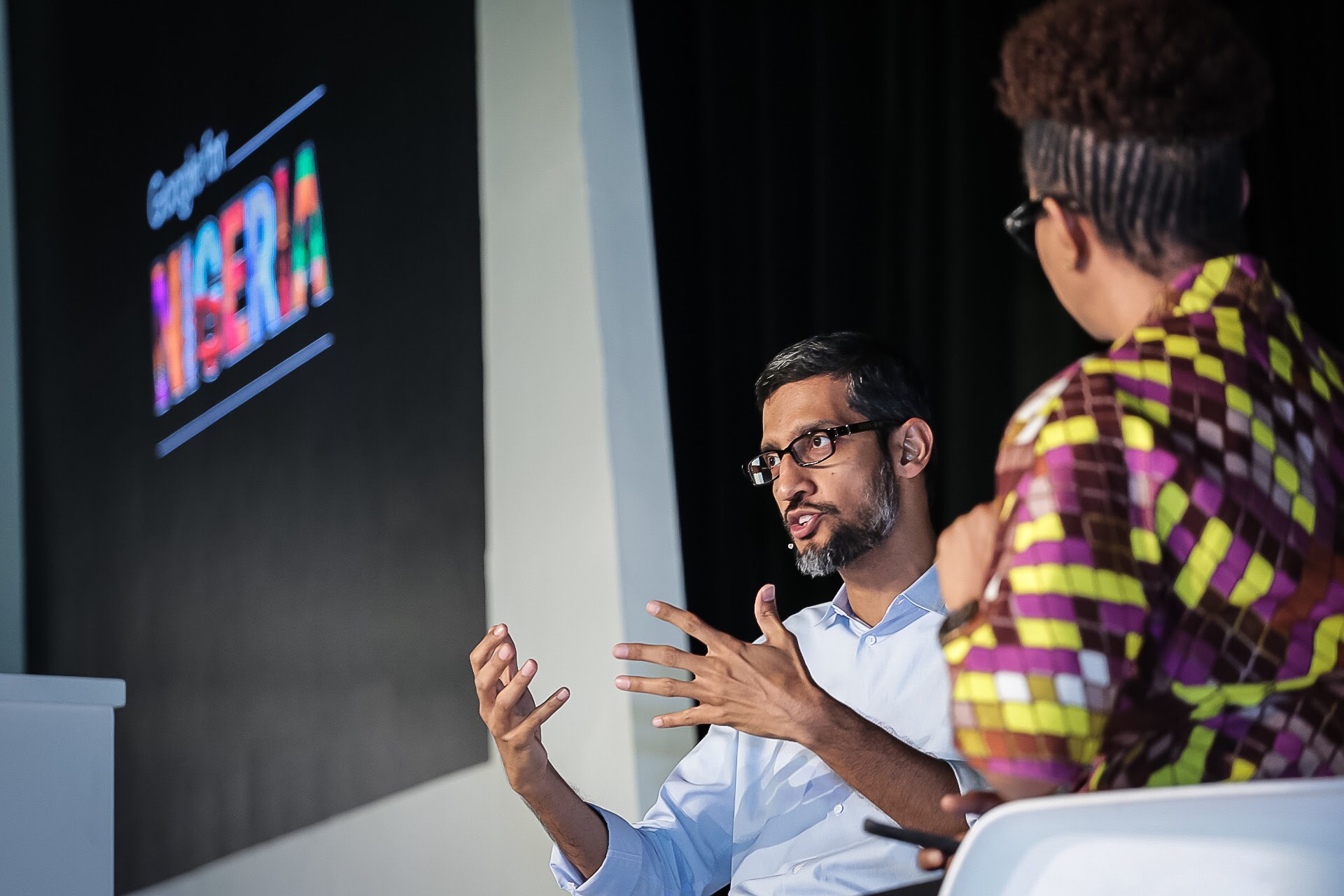Photos: Google CEO Sundar Pichai Visits Nigeria For The First Time, Highlights Plan To Make Internet Work BetterFor Nigerians

By 2034 Africa is expected to have the world’s largest working-age population of 1.1 billion—yet only 3 to 4 million jobs are created annually. That means there’s an urgent need to create opportunities for the millions of people on the continent who are creative, smart and driven to succeed. The internet, and technology as a whole, offer great opportunities for creating jobs, growing businesses and boosting economies. But people need the right skills, tools and products to navigate the digital world and to make it work for them, their businesses and their communities.
Today, at our Google for Nigeria event in Lagos, we announced progress we’ve made in our products and features for users in Nigeria, including YouTube, Search and Maps. We also announced initiatives focused on digital skills training, education and economic opportunity, and support for African startups and developers.
Last year we set out to help bridge the digital skills gap in Africa when we pledged to train one million young people in the region—and we’ve exceeded this target. Through either in-person or online trainings, we help people learn to build a web presence, use Search to find jobs, get tips to enhance their CV, use social media, and so on. Now we’re expanding this program, and committing to prepare another 10 million people for jobs of the future in the next five years. We’ll also be providing mobile developer training to 100,000 Africans to develop world-class apps, with an initial focus on Nigeria, Kenya and South Africa.
Google.org grants
Our charitable arm, Google.org, is committing $20 million over the next five years to nonprofits that are working to improve lives across Africa. We’re giving $2.5 million in initial grants to the nonprofit arms of African startups Gidi Mobile and Siyavula to provide free access to learning for 400,000 low-income students in South Africa and Nigeria. The grantees will also develop new digital learning materials that will be free for anyone to use.
We also want to invite nonprofits from across the continent to share their ideas for how they could impact their community and beyond. So we’re launching a Google.org Impact Challenge in Africa in 2018 to award $5 million in grants. Any eligible nonprofit in Africa can apply, and anyone will be able to help select the best ideas by voting online.
Launchpad Accelerator Africa
We want to do more to support African entrepreneurs in building successful technology companies and products. Based on our global Launchpad Accelerator program, this initiative will provide more than $3 million in equity-free funding, mentorship, working space and access to expert advisers to more than 60 African startups over three years. Intensive three-month programs, held twice per year, will run out of a new Google Launchpad Space in Lagos—the program’s first location outside of the United States.
Making our products work better in Africa
For people to take advantage of digital opportunities, acquiring the right skills and tools is only part of the equation. Online products and services—including ours—also need to work better in Africa. Today, we’re sharing news about how we’re making YouTube, Search and Maps more useful and relevant for Nigerian users.

YouTube Go
Designed from the ground up, YouTube Go lets you discover, save and share videos you love in a way that’s transparent about the size of downloads. Designed to be “offline” first, the app improves the experience of watching videos on a slower network and gives control over the amount of data used streaming or saving videos. It’s a full YouTube experience, with fresh and relevant video recommendations tailored to your preferences and the ability to share videos quickly and easily with friends nearby. In June, Nigeria became the second country where we started actively testing YouTube Go. Later this year, we’ll be expanding this to a beta launch of the app, available to all Nigerian users.
Lagos now on Street View in Google Maps
In the last few months, we’ve improved our address search experience in Lagos, by adding thousands of new addresses and streets, outlines of more than a million buildings in commercial and residential areas, and more than 100,000 additional Nigerian small businesses on Google Maps. Today we’re launching Lagos on Street View, with 10,000 kilometers of imagery, including the most important historic roads in the city. You can virtually drive along the Carter Bridge to the National Stadium or across the Eko Bridge, down to the Marina—all on your smartphone.
Faster web results
When you’re on a 2G-like connection or using a low storage device, pages can take a long time to load. We previously launched a feature that streamlines search results so they load with less data and at high speed. Today we’re extending that feature to streamline websites you reach from search results, so that they load with 90 percent less data and five times faster, even on low storage devices.
More local information in Search
We’ve also made several updates to Search to bring more useful, relevant answers and information to people in Nigeria:
● Knowledge Panels: We’re connecting people with easy access to the answers to things they care about, displaying knowledge cards for everything from local football teams to Nigerian musicians and actors.
● Health Cards: Later this year we’ll launch more than 800 knowledge cards detailing common symptoms and treatments for the most prevalent health conditions in Nigeria. We’ve partnered with the University of Ibadan to ensure that answers have been reviewed by Nigerian doctors for local relevance and accuracy. Nigeria is one of the first countries where we’re providing locally tailored health answers on Search.

● Posts on Google: Posts makes it possible for musicians, entertainers and other public figures to share updates, images and videos directly on Google, for people to see while they explore on the web. Nigeria is the third country where we’ve made this feature available and some of the country’s popular musicians are already using it.
The things we’re announcing today are what drive us—building platforms and products that are relevant and useful for billions, not just the few, and helping people to succeed in the digital economy. That’s why we hope to equip more people, in Africa and elsewhere, with digital skills and tools. We’re excited to be part of Africa’s evolving digital story.




